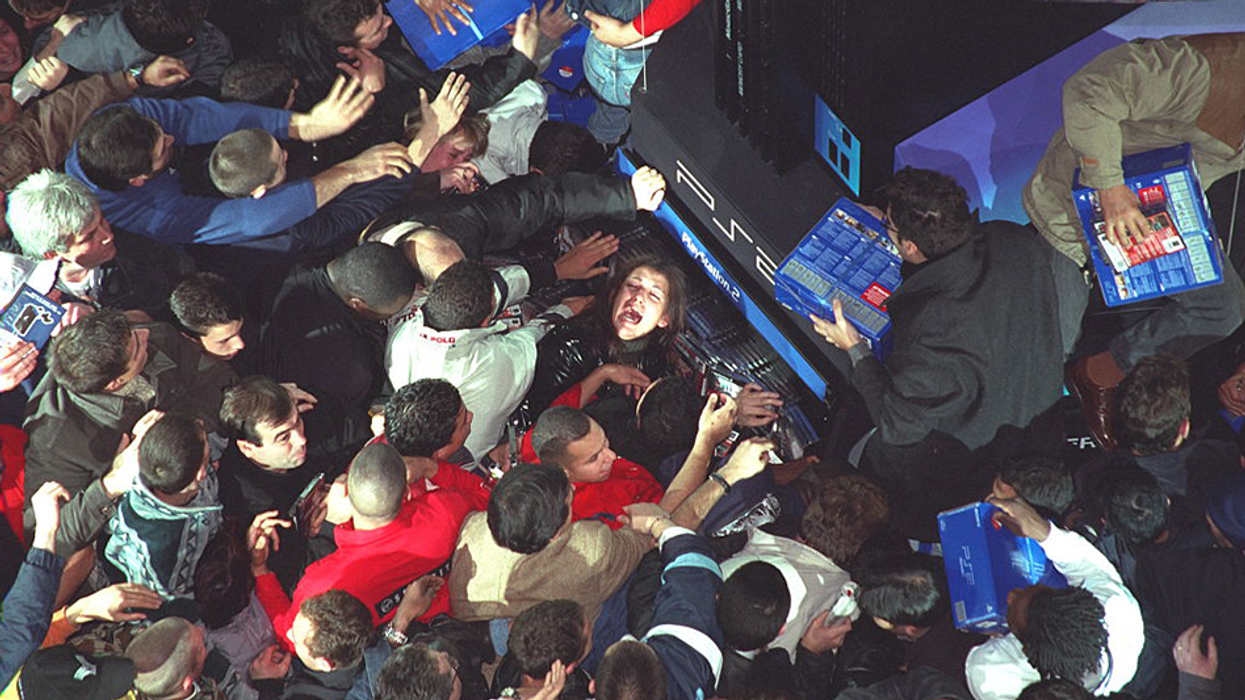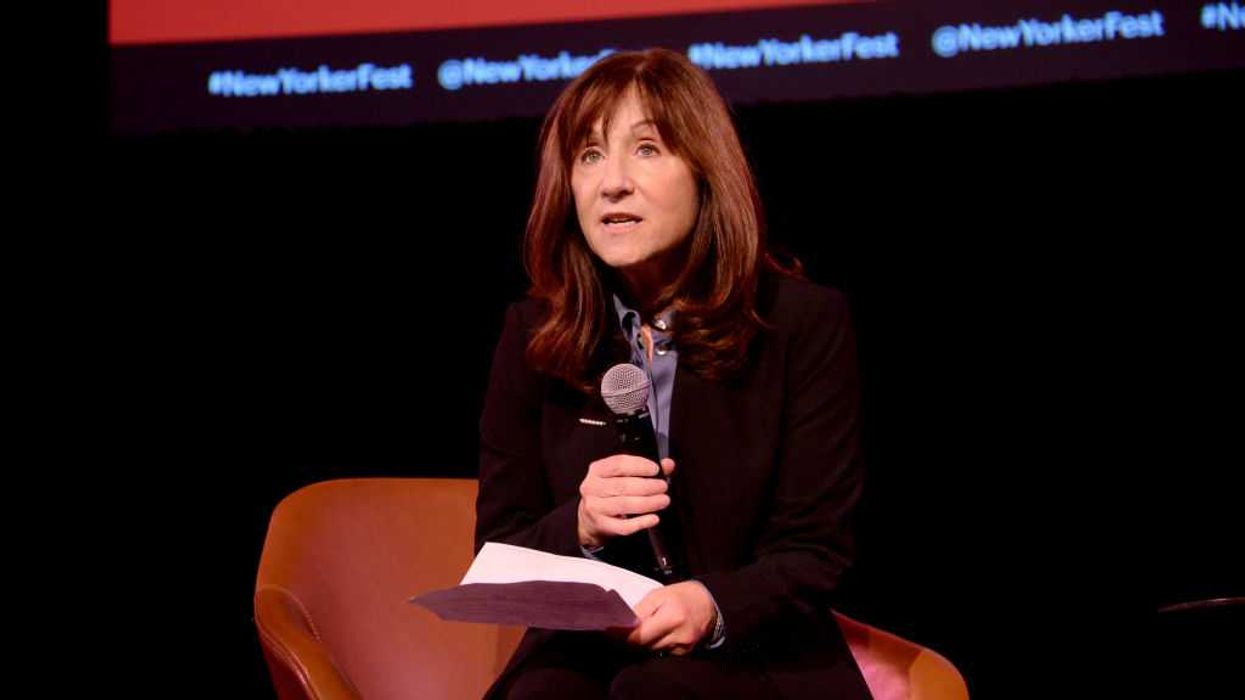
© 2025 Blaze Media LLC. All rights reserved.
How Fascinating Noise Apps Can Make You More Productive, Creative (and Increase Your Attention Span by 400%)
August 15, 2013
"...helps you improve your life just by listening to music."
Will Henshall was in a band and had a couple hit records in the 1990s. But in one of his latest endeavors his goal is that you not notice the sound he's producing at all.
Why? Because he's trying to engage your subconscious mind -- not your conscious mind -- in an effort to make you more focused and productive.
"Here in the Silicon Valley, people work crazy hours," Henshall said. And like many people, Henshall said he wants to "be productive and then get the hell out of the office and spend time with my family."
That's why the entrepreneur created Focus@Will, a web tool that uses instrumental music to "increase your attention span up to 400 percent." Eventually, Henshall hopes the tool could even help replace or cut down on medication taken by patients with problems focusing.
 Focus@Will has different music settings ranging from classical to soothing spa to techno beat, hoping users will find what strikes the best chord to distract their subconscious enough so they can focus on a task. (Image: Focus@Will)
Focus@Will has different music settings ranging from classical to soothing spa to techno beat, hoping users will find what strikes the best chord to distract their subconscious enough so they can focus on a task. (Image: Focus@Will)
How does it work? It took two years of scientific research for Henshall and his team to develop the tool designed to engage the brain's limbic system -- the system responsible for fight-or-flight -- keeping it occupied so you can focus on the task at hand for longer.
Focus@Will, which launched in May, has an extensive page describing what's going on in the brain that allows certain types of music to distract part of the mind in order to let another part of it focus, but here's the gist of why science thinks a noisy environment might be more conducive for work than say a quite library:
Some theorists say this phenomenon is the result of cognitive load; your brain only has so much processing power for any given sensory modality at a time. The overloading of your auditory senses with stimuli results in a process wherein over a short period of time, usually about 20 minutes or so, you get used to the noise. This process is called habituation, and because of it you are able to free up processing power for the task at hand. You will probably still notice when something unexpected pops up, but the neurons in your brain responsible for helping you sense the stuff in your environment quiet down and let you focus. This is also what happens within your brain when you are at a cocktail party and try to listen selectively to one person over the sounds of the entire room, and was elegantly first described as the “Cocktail Party Problem” back in the 1950’s.
But there's a sweet spot to be reached here. Distracting this part of your brain with other sounds is only effective for so long, and some sounds are better at distracting it than others.
That's where Focus@Will comes into play. The tool has several instrumental tracks that Henshall said have been tested to help two out of three people successfully focus for longer.
"If we play a song you like, it didn't work so well," Henshall said, noting how the whole point of the music is to go unnoticed.
"Engaging your subconscious mind, it helps you zone out distractions," he continued.
 Users who register with the site will be able to track their productivity metrics. (Image: Focus@Will)
Users who register with the site will be able to track their productivity metrics. (Image: Focus@Will)
In fact, if you hear a song that you "notice," Henshall said users should push a button to skip it. The system will then learn your preferences and adjust to give you the best chance for focus.
Focus@Will also has patent-pending phase technology with its music that is intended to help prevent habituation, or getting used to the sound.
 This chart shows how Focus@Will's tool helps maximize concentration over a 100-minute cycle. (Image: Focus@Will)
This chart shows how Focus@Will's tool helps maximize concentration over a 100-minute cycle. (Image: Focus@Will)
Need a creative boost?
Focus@Will isn't the only new-ish web tool creating ambient noise for your work space.
Another recently released tool called Coffitivity takes a different twist on ambient noise, hoping to enhance users creativity.
ACe Callwood, the creative direction for Coffitivity and coordinator for entrepreneurship for the School of Business at Virginia Commonwealth University, said his colleague Jason Kauszler was trying to launch a startup and spent much of his time at a local coffee shop working on it. When Kauszler headed to his day job, working in a quiet office environment, he was "banging his head against the computer," as Callwood put it.
"The next best thing was to bring the coffee shop to him," Callwood said.
 Not to quiet or too loud. (Image: Coffitivity)
Not to quiet or too loud. (Image: Coffitivity)
And Coffitivity was born. The team recorded actual audio in local coffee shops for different tracks that provide just "enough noise to work."
The idea that the sound boosts creativity is based on research published last year in the Journal of Consumer Research that found a moderate level of noise "increases processing difficulty, inducing a higher construal level and thus promoting abstract processing, which subsequently leads to higher creativity."
One of the study's authors, Ravi Mehta, an assistant business administration professor at the University of Illinois at Urbana Champaign, explained to TheBlaze that a certain level of distraction helps boost creative thinking.
"When people say sound increases focus, we find it induces distraction, which makes you think at a broader level," Mehta said.
In addition to being able to listen to some of the gentle clanging of dishes, steaming of milk and chatter through Coffitivity's website, the team recently released apps for the tool, which would allow the tracks to be played without an Internet connection.
Within just a couple days of releasing the app versions, Coffitivity is on Apple's top 10 for paid apps (it costs $1.99).
 It didn't take long for Coffitivity to make it into Apple's top paid apps list. (Image: App Store)
It didn't take long for Coffitivity to make it into Apple's top paid apps list. (Image: App Store)
What do actual users have to say about it? Here are a few responses from users who have taken to Coffitivity's Facebook page:
Jamie Zeller: Every time I'm feeling less than motivated, I make a cup of joe and go to your site, and every time the result is the most productive hours of the day. Not sure why I haven't set it as my homepage yet. You guys are awesome!Alice Wolfstory: I discovered Coffitivity for the first time yesterday, and it boosted my writing immensely! I wrote as much in one day as I had done in the entire week before! Coffitivity is my new writing buddy.
Jessica Hoenig: Loving it! Great way to wake up in the morning! Finishing up a project where I've been asked to go through several rounds of completely new ideas for an ad campaign. Can almost smell the coffee
Could ambient noise reduce a dependence on drugs?
In addition to these apps helping people who need a creative or productivity boost once in a while, there could be some health benefits from web tools, according to Henshall.
Tools like Focus@Will could reduce a patient's dependence on medication to treat ADHD, for example. Or it could even cut back on abuse of such drugs by students using them as study aids.
A man who found out at age 60 that he had ADHD wrote on Focus@Will's community page that "it was the only thing I have ever experienced that actually helped," citing medication doing nothing for him.
"After you become 'of an age' it's hard enough to try to get new info into your gray matter without ADHD but Focus it the best, and for me, only aid to that result that has any value," Hank Bindbeutel wrote.
Other users with ADHD have seen a benefit in using the tool as well.
"It's hollistic, healthy and non-drug," Henshall said. "It helps you improve your life just by listening to music."
Featured image via Shutterstock.com.
--
[related]
Want to leave a tip?
We answer to you. Help keep our content free of advertisers and big tech censorship by leaving a tip today.
Want to join the conversation?
Already a subscriber?
more stories
Sign up for the Blaze newsletter
By signing up, you agree to our Privacy Policy and Terms of Use, and agree to receive content that may sometimes include advertisements. You may opt out at any time.
Related Content
© 2025 Blaze Media LLC. All rights reserved.
Get the stories that matter most delivered directly to your inbox.
By signing up, you agree to our Privacy Policy and Terms of Use, and agree to receive content that may sometimes include advertisements. You may opt out at any time.





